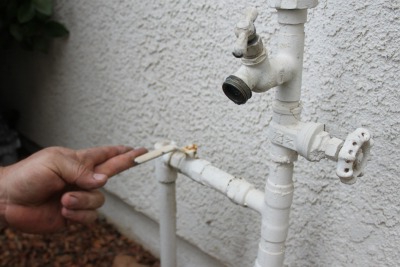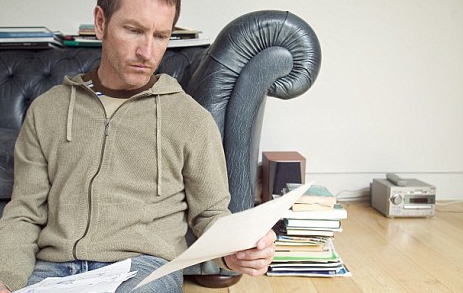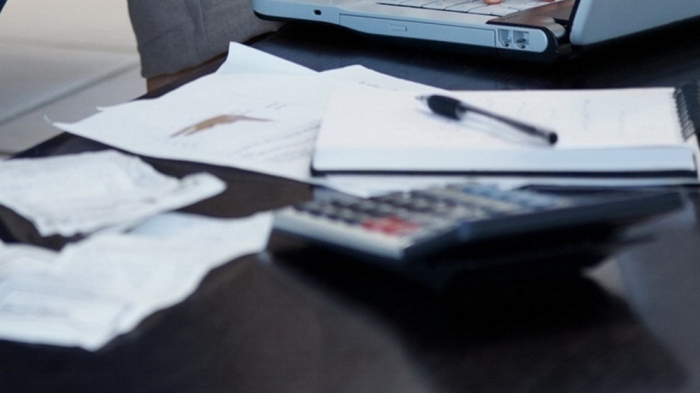Again, tariffs for housing and communal services have risen. And this is not the only trouble awaiting the Russians.
Utilities are waiting for payment
The eternal theme in the relationship of communal services and their customers is the late payment of the services provided. Debt of tenants can practically put enterprises on the brink of bankruptcy. Therefore, the solution to this problem is vital for them. Those who clean garbage, provide water and sanitation, are constantly looking for opportunities to spur their consumers to timely payment for the benefits of civilization. This topic becomes especially topical in the face of rising tariffs for housing and communal services.
The relevance of the issue of non-payments
 According to experts, now only 6% of consumers are debtors of public utilities. But this rather small part of the population owed a considerable amount of money. According to existing statistics, for only half of malicious debtors, payment of utilities is an overwhelming burden. The second half has all the possibilities to pay bills for electricity, water, sewage, etc. on time, but does not. Someone consciously, someone out of forgetfulness, someone for other reasons is in no hurry to part with their hard-earned money. Just for this category of citizens punitive measures for late payments are calculated.
According to experts, now only 6% of consumers are debtors of public utilities. But this rather small part of the population owed a considerable amount of money. According to existing statistics, for only half of malicious debtors, payment of utilities is an overwhelming burden. The second half has all the possibilities to pay bills for electricity, water, sewage, etc. on time, but does not. Someone consciously, someone out of forgetfulness, someone for other reasons is in no hurry to part with their hard-earned money. Just for this category of citizens punitive measures for late payments are calculated.
Non-payers face interest
The quickest reaction from the side of the public utilities is the accrual of late interest fees. She begins to act immediately - the day after the expiration of the maturity of bills. As a rule, this is the date indicated in the Housing Code - the 10th day of the next month, if you take for the starting point the one for which utility bills are charged. Although there may be options when its deadline is set by agreement or resolution of the general meeting of homeowners (their community).
Non-payers should be aware that each day of delay automatically increases their debt due to the accrual of a penalty for non-payment of housing and communal services. Penalties apply both to those who completely ignore incoming payments, and to those who partially repay the accrued amounts.

Additional measures applied to debtors
The accrual of interest is not all. If a citizen within two months does not find reserves for settlement with utilities, they have the right to limit or stop the supply of heat, water and light. If the situation does not change after six months, the public utilities will go to court, which will almost always oblige the client to pay all the debts to the housing and communal services. Those who ignore the court’s decision will meet with bailiffs who have the right to seize the debtor’s property to pay off the debt and seize his bank accounts (except for the social payments account). If the debt exceeds 10 thousand rubles, the citizen will have difficulty traveling abroad. In addition, there are problems with legal operations with real estate encumbered with debts. For malicious defaulters, a draconian measure is provided for. Residents of municipal housing may be required to move to a smaller apartment (room), hoping that there should be at least 6 "squares" per person. Naturally, this procedure is carried out only by court order.
How late fees for utility bills are calculated
Penalties for payers depend on three values:
- amount of debt;
- Central Bank refinancing rates (1/300 of this indicator is taken for calculation);
- number of days past due.
 Multiplying all these quantities, we get the size of the penalty. Of the indicated values, citizens can influence two main ones - the number of overdue days and the amount of debt. It should be borne in mind that if payment of debt takes place in several stages, then the calculation of interest for utility services is also carried out in stages. That is, if on the 10th day the debt was 2500 rubles, and it was repaid in two stages: by paying the 20th day, 1500 rubles, and the rest after five days, then two calculations need to be made. The first - for 10 days of delay, given the full amount of the debt, the second - for five days, but based on the amount of 1000 rubles.
Multiplying all these quantities, we get the size of the penalty. Of the indicated values, citizens can influence two main ones - the number of overdue days and the amount of debt. It should be borne in mind that if payment of debt takes place in several stages, then the calculation of interest for utility services is also carried out in stages. That is, if on the 10th day the debt was 2500 rubles, and it was repaid in two stages: by paying the 20th day, 1500 rubles, and the rest after five days, then two calculations need to be made. The first - for 10 days of delay, given the full amount of the debt, the second - for five days, but based on the amount of 1000 rubles.
It should be noted that the refinancing rate of the Central Bank of the Russian Federation is usually indicated as a percentage. To calculate the penalty for late payments of utility bills, you need to convert it into shares using a simple mathematical operation: dividing this value by 100%.
"Small" financial nuance
When calculating the penalty for utilities, two rates of the Central Bank of Russia should be distinguished: the key and the refinancing rate. As stated above, it is the latter that is applied in the calculation formula of the penalty.
For reference. The refinancing rate (it is also the discount rate) is the rate of the Central Bank for calculating interest when issuing loans to commercial banks.
The key rate is also the interest rate, but used by the Central Bank to stabilize the entire banking system. This value "works" only in September 2013. The plans for the future of the Central Bank of Russia are to equalize the values of these two rates. So far, this has been planned since the beginning of 2016.
In the meantime, the two indicated values have completely different meanings. To date, the refinancing rate has remained unchanged since September 14, 2012 and amounts to 8.25%. The key rate for 1.5 years of its existence has changed seven times already, see table:
| date | Key bid size,% |
| since February 2, 2015 | 15 |
| since December 16, 2014 | 17 |
| since December 12, 2014 | 10,5 |
| from November 5, 2014 | 9,5 |
| since July 28, 2014 | 8 |
| since April 28, 2014 | 7,5 |
| since March 3, 2014 | 7 |
| since September 13, 2013 | 5,5 |
As you can see, it turned out to be more mobile. Over the past year, in response to changes in the ruble exchange rate, I managed to jump three times and already drop slightly.
Increased or not?
 The jumps in the key rate of the National Bank made it possible for some kind of hype - supposedly because of its increase, the amount of debt for those who did not pay on time for garbage, water and sewage increased. But since the refinancing rate, which remains stable, is used for calculation, the penalties for late utility payments remain unchanged. 2015 at the moment has not brought any changes in this area. Therefore, all the talk that last year’s debt will have to be paid more due to the increase in the National Bank’s rate is so far groundless. There are no grounds for recalculating them today.
The jumps in the key rate of the National Bank made it possible for some kind of hype - supposedly because of its increase, the amount of debt for those who did not pay on time for garbage, water and sewage increased. But since the refinancing rate, which remains stable, is used for calculation, the penalties for late utility payments remain unchanged. 2015 at the moment has not brought any changes in this area. Therefore, all the talk that last year’s debt will have to be paid more due to the increase in the National Bank’s rate is so far groundless. There are no grounds for recalculating them today.
That the coming year?
 But nevertheless, it is not worth it for calamitious defaulters to calm down. A bill has already been passed in second reading, amending the Housing Code of the Russian Federation. They just relate to the rules for calculating late fees for utility bills. It is planned that for this they will take not 1/300 of the refinancing rate, but 1/170 of its value. That is, the size of penalties is planned to be almost doubled. As a result, non-payers will have to pay financial penalties, paying a fine, which is more than 17% per annum of the amount owed. According to experts, such a legislative act will be adopted by the State Duma this spring.
But nevertheless, it is not worth it for calamitious defaulters to calm down. A bill has already been passed in second reading, amending the Housing Code of the Russian Federation. They just relate to the rules for calculating late fees for utility bills. It is planned that for this they will take not 1/300 of the refinancing rate, but 1/170 of its value. That is, the size of penalties is planned to be almost doubled. As a result, non-payers will have to pay financial penalties, paying a fine, which is more than 17% per annum of the amount owed. According to experts, such a legislative act will be adopted by the State Duma this spring.
But there is good news. With the adoption of this bill, the time for calculating interest is postponed. Amendments to the new law were adopted, according to which penalties will be made not from the first day of delay, but from the 91st.This means that the debtor will have three months in order to pay off utilities.
Is it possible to avoid the penalty for utilities?
The answer suggests itself - pay on time. But there are situations when this cannot be done. For example, you are going to leave for a long time in another settlement. In this case, you can contact the utility company that serves your home with a statement on the allocation of charges for housing services. Recalculation cannot be carried out for more than six months. If the absence is assumed for a longer period, then the application for the allocation can be sent by mail.
 You can negotiate with the utilities after returning home, but not later than a month from the moment of arrival. Naturally, without documents confirming the reason for your absence (sick leave, travel documents, sanatorium voucher, etc.), no one will talk to you. Accordingly, if you write a recalculation application before departure, it will be made as payments are accrued. If you apply to the management office "retroactively", then the already accrued receipts will be reviewed. But all this does not apply to heating and payment for common house services.
You can negotiate with the utilities after returning home, but not later than a month from the moment of arrival. Naturally, without documents confirming the reason for your absence (sick leave, travel documents, sanatorium voucher, etc.), no one will talk to you. Accordingly, if you write a recalculation application before departure, it will be made as payments are accrued. If you apply to the management office "retroactively", then the already accrued receipts will be reviewed. But all this does not apply to heating and payment for common house services.
If the payment of utility bills is not made due to financial difficulties, then you will be asked to issue a subsidy. If it is not possible to do this, there is an option with installment payment of debt, confirmed by a signed agreement with the organization providing utility services.
